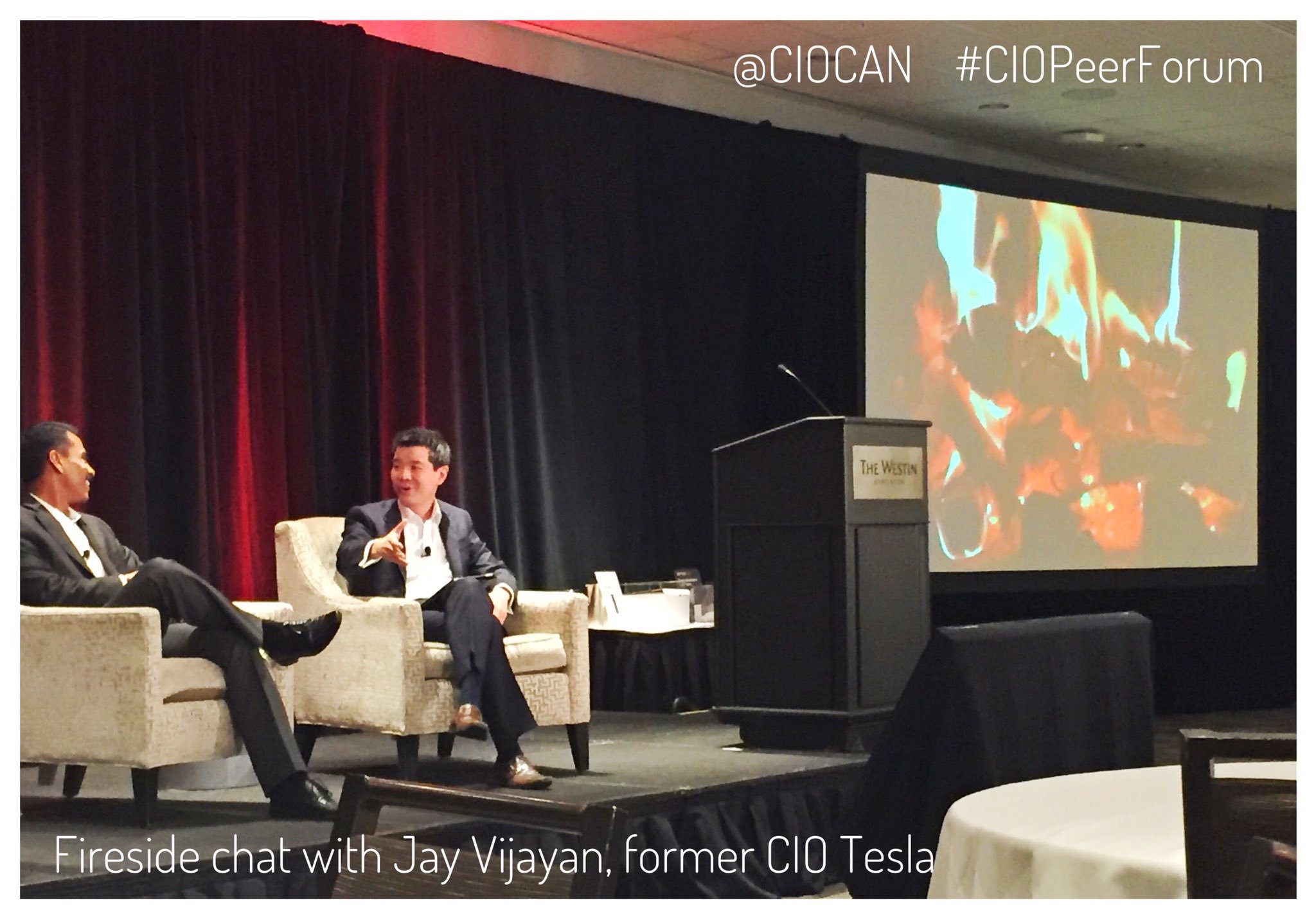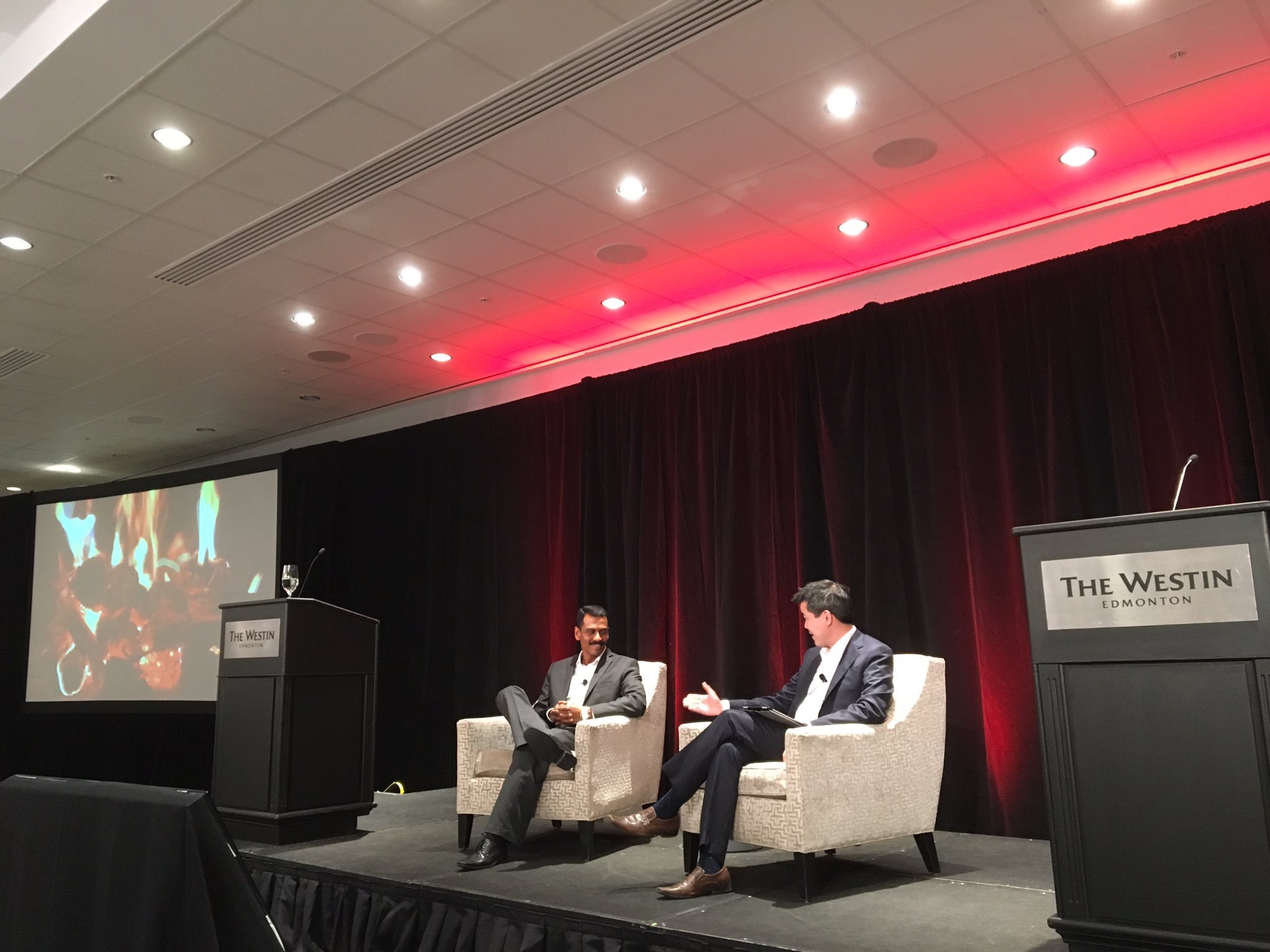By Alex Piasta, Guest Contriubutor
At the 2017 CIOCAN conference held in Edmonton, Alberta, Jay Vijayan formerly of Tesla Motors explained his innovative professional experiences. By developing breakthrough technology for one of the most innovative companies of the century, his positive impact has helped transform the entire automotive industry. His lessons learned during this journey were shared to bring inspiration to the next generation of leaders.
Having a strong set of skills from his experience at Oracle and VMWare, he applied for a corporate IT position at Tesla Motors in 2010. He described interviewing with Elon Musk as an inspiring moment. Near the end of the job interview, he intelligently asked Elon “What’s your vision for Tesla?” Elon went on to describe the Tesla vision clearly about how he wants to build the world’s best cars. This shared vision has become a reality through persistent effort and achieving what could be considered impossible.
Helping create this remarkable company has required overcoming massive challenges. Tesla has a vision of being vertically and seamlessly integrated utilizing information flow to continually engage users. When Tesla was about to launch the Model S and business was steadily growing, instead of going the costly route of implementing a trusted ERP system like SAP, CEO Elon Musk tasked the Chief Information Officer, Jay Vijayan to develop a custom end-to-end system called Warp. Fully customized for the unique Tesla business model, Vijayan built and implemented the system in only 4 months with a small team of 25 software engineers. Creating a superior user experience by installing features such as retractable door handles and a massive control panel gives Tesla owners that full sense of satisfaction.
The three main factors differentiating Tesla from other automotive companies are: selling cars online, servicing its own cars and consistent over-the-air updates. The Warp system allows Tesla to create a short feedback loop and quickly push updates back to customers. Everything is managed from the order processing to the manufacturing workflow and supply chain management.
Key success factors are:
1. Have a strong commitment to a clear vision!
2. Disruption can be good! Lots of unknowns.
3. Benchmark of manufacturing 500 cars per week at a healthy profit margin.
4. When parts were not available, this was considered a good sign because this means they were being innovative.
5. Clear definitions of the top 3 company goals. Live by them.
6. Make sure the IT team feels as if they are first class within the organization.
7. Create a strong sense of trust among the development team.
8. IT is like the CNS (Central Nervous System) of the company. Major competitive advantage if structured correctly.
9. Older industries are at a disadvantage because they are typically trying to get business out of the way. With a start-up, everything is all new.
10. Every team member needs to have a strong sense of purpose!
Maintaining trust in a confidential environment is a top priority for any organization. Allowing for open communications and proper training for employees is essential. Developing a strong sense of trust is an important reason why they maintain such a high retention rate within the IT department.
Having the right mindset means everything. Nothing is impossible. The reason Tesla can successfully disrupt the automotive industry is because of the way the automotive industry is entirely setup. By approaching this with a uniquely new business model, the user experience is refined to provide the customers with the best overall experience. When customers love the experience of using the product and service, the business will sustain steady growth.
Today, Vijayan is CEO at a new start-up. As the leader with such a strong foundation and purposeful vision, what he is currently working on could be the next game changing organization.
This artticle was provided by Alex Piasta, who volunteered at the CIO Peer Forum 2017. Alex is business professional working for a Fortune 500 industrial company across Western Canada. He is completing the Business Intelligence and Data Management Certificate at NAIT. Alex is passionate about BI and graduated from the University of Manitoba with a Bachelor’s of Commerce degree.

